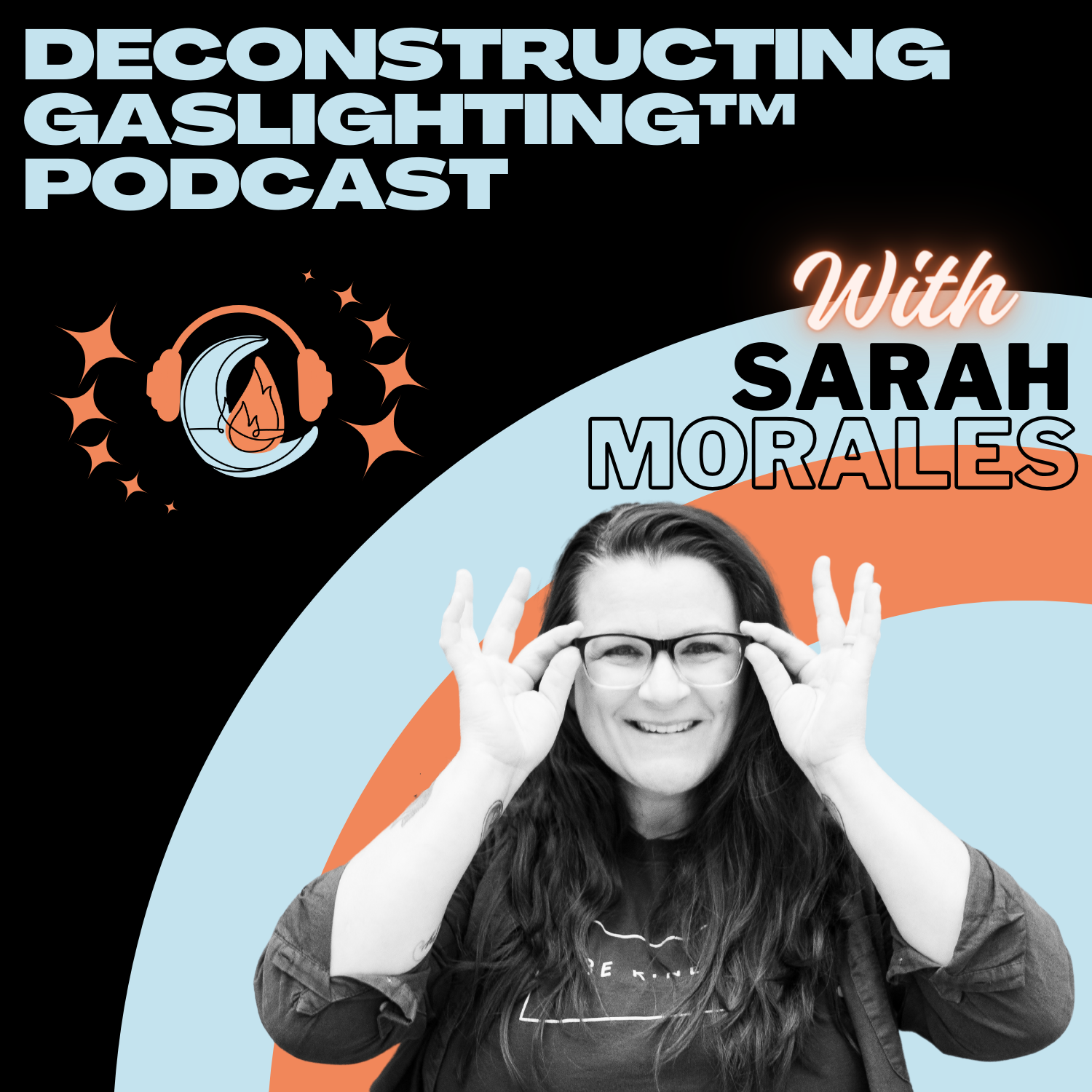My helpers weren't helpful!
Description
Have you ever sought out help – whether that be a therapist, religious leader, life coach, or even doctor – and not only did you NOT walk away from that experience with the help that you needed, but you ended up being further confused, possibly misdiagnosed, and re-traumatized? Today, Sarah and her guest deconstruct how gaslighting is almost always a part of these experiences and give you some tips on how to protect yourself moving forward.
Sarah is VERY passionate about helping others truly understand gaslighting. This is the foundation for being able to OPT OUT of gaslighting experiences. The best place to start with that is Sarah’s free video series, where you can also gain access to the workbook Sarah created to go along with it.
Word of the day: Rationalization. Oxford Dictionary defines rationalization as the action of attempting to explain or justify behavior or an attitude with logical reasons, even if these are not appropriate. In the case of gaslighting, rationalization is used similarly to minimization (that’s why it’s “inappropriate).
The guest today is Julie St. Onge. She is the Founder of The New England Betrayal Trauma Conference and New England Coaching Services. Instagram
Story Time: Sarah and Julie talk about the examples from Julie’s life where she tried to get help, but was instead further traumatized, and how she was able to find good, trauma-informed help… and, how she’s turned that around into helping others.
Deconstruction Zone:
Sarah highlights how the helping professional -in today’s story, multiple pastors – ended up furthering the trauma that was being experienced by engaging in gaslighting behaviors. The pastors rationalized away the harmful/abusive behaviors, and over-spiritualized the response to the abuse; they minimized Julie’s reality, threw her values into conflict, and basically created a diversion by placing the emphasis on spiritual principles (applied inappropriately) instead of addressing the abuse and giving Julie not only practical help, but “permission” to advocate for her safety. They minimized the risk she and her children were in, and changed (or attempted to change) the reality Julie was living day in and day out. Even they likely were not doing this on purpose – intent doesn’t really matter here. We don’t have to make excuses for helping professionals who step outside of their training, experience, and expertise. They need to do better.
Set Your Alarm:
Julie shares a few tips: take safety assessments; review the power-control wheel.Take stock of changes you notice in yourself (within 90 days) – if no change, add or change your helper.If you need to, advocate by saying, “I’m feeling stuck, can we have an evaluation?”
Snooze button: Sarah encouraged that when it comes to helping professionals, don’t settle. You deserve to be heard, validated, and supported; you deserve to have a helper that sees you, listens to you, and helps you not only survive what you’re going through, but be able to believe in yourself and begin to thrive again.
Good news! Sarah’s OMB is working out the final things on her website, so she’s just days away from having her new ways to go through her signature program be live on her website! Go check it out and follow Sarah on a...
More Episodes
Published 10/08/24
Published 08/27/24
Published 07/16/24


